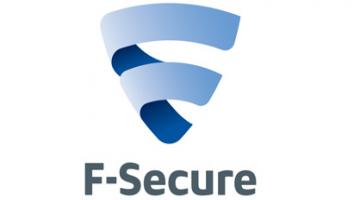More companies are taking steps to restrict access to online services from abroad, making VPNs important travel accessories for people that need to stay connected while away from home.
Eastern weekend is almost here, and many people will be taking  trips to visit loved ones or otherwise enjoy the holiday. But changes in the cyber security landscape will pose some unique challenges to travelers looking to stay connected to online services. Using a VPN is now vital for travelers that want to keep their private data safe and access important services from the road.
trips to visit loved ones or otherwise enjoy the holiday. But changes in the cyber security landscape will pose some unique challenges to travelers looking to stay connected to online services. Using a VPN is now vital for travelers that want to keep their private data safe and access important services from the road.
Several banks responded to distributed-denial-of-service attacks earlier in the year by simply restricting the ability of people to access online banking services from abroad*. This echoes a similar strategy used by Estonian institutions when they faced a sustained series of cyber attacks in 2007**. The advantage of this response is that it helps people access the services locally, but it’s a major problem for travelers counting on things like online or mobile banking.
“People want to relax when they travel, so bringing along their iPad or mobile phone or whatever to stay connected is pretty convenient – much better than hauling a laptop around”, says Sean Sullivan, Security Advisor at F-Secure. “But companies have their own interests to protect. It’s great that they’re doing something, but their security procedures can lock people out of their own accounts without much notice. Travelers now need to be prepared for stuff like this if they’re expecting to access to online banking or other online services”.
Virtual private networks (VPNs) create secure connections that individuals can use to access the Internet. They also hide the location of users and substitute it with a “virtual location”. Some VPNs, such as F-Secure’s Freedome, offer users a choice between several different virtual locations. The feature essentially lets people tether themselves to their home countries, making it an easy way to prevent being inconvenienced by restrictions implemented by banks or other organizations providing online services.
Governments say Public Wi-Fi Puts Travelers at Risk
VPNs are also important safety measures when using the public Wi-Fi services offered at many hotels, restaurants, and airports. These public Wi-Fi hotspots are great for travelers looking to avoid roaming charges, but organizations such as Europol have pointed out that they’re a tremendous security risk. Both the FBI and the Government of Canada advise against using public Wi-Fi networks while traveling abroad. And according to research conducted by F-Secure, many people connect to these networks without taking the necessary precautions, which leaves them susceptible to identity theft and other cyber crimes.
Sullivan says he’s learned the value of having a secure Internet connection while traveling. “It’s not just about working around restrictions that prevent me from accessing online services. It’s also about privacy. Public Wi-Fi connections leave Internet users so exposed that it’s simply unsafe to use them without taking security precautions. Using them is like traveling without insurance – you won’t realize how important it is until it’s too late.”
VPNs such as Freedome encrypt communications, which prevents people from monitoring or intercepting data exchanged over Wi-Fi networks. Many organizations, governments, and security researchers recommend using them whenever accessing the Internet from a public place. It’s far less costly than becoming a victim, and it ensures travelers can enjoy Easter without worrying about getting cut off from home.
Checklist for Securing Devices before Traveling
Sullivan recommends taking 3 simple steps to secure your devices and data before venturing away from home:
1. Lock your device with a PIN number or passcode. It’s easy to lose a mobile phone, making them tempting targets for pickpockets and thieves. Locking it with a code instead of a gesture will make it harder for other people to access the personal information stored on your devices.
2. Remove files that you don’t need. Many devices store documents or files, and can do so without your knowledge. It may save information that you really don’t want to share, and so taking a few minutes to delete old downloads and other files will help you stay in control of your data.
3. Test your VPN connectivity before you leave. Download a VPN such as Freedome and make sure it works before you leave for your trip. Doing it before you leave will let you see that everything is working correctly, and you won’t get caught in a situation where you’re trying to purchase software using a public Wi-Fi hotspot.






